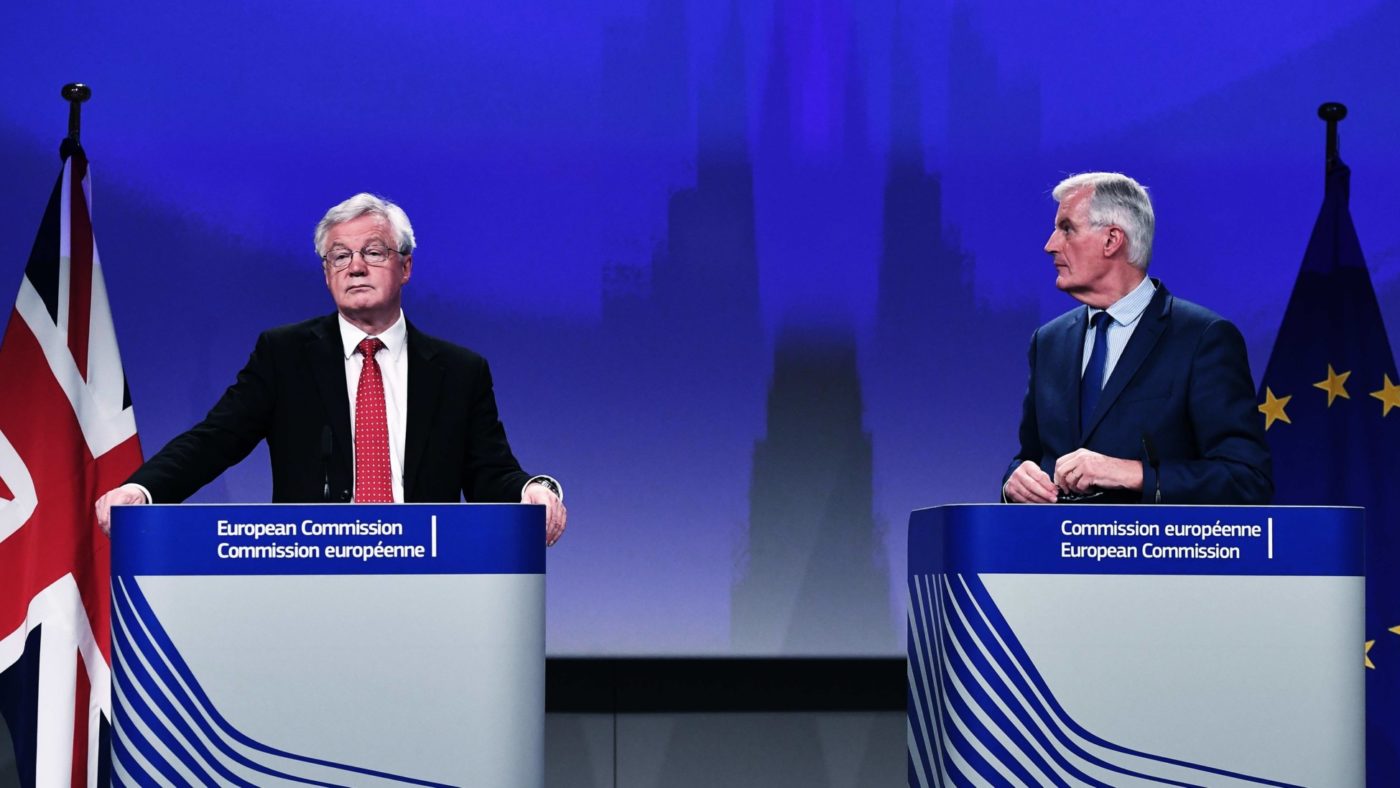If the EU and UK were to fail to come to a new trade agreement post-Brexit, and were instead to impose tariffs and other restrictions on each others’ exports, that would be worse for both economies over the medium to long term. Free trade is better. But what about in the short term?
Let’s abstract from other things that might be going on in a no deal scenario, and just focus on the economic impacts of tariffs and non-tariff barriers. Call this a “no FTA scenario”. How should these be expected to play out in the short term? Let’s first divide the scenario into two cases: firms continue to export from the countries they are based in; or firms move.
If firms continue to export, they will pay tariffs. If prices were unchanged, such tariffs would simply be losses to exporting firms and gains to the national treasury of the importing country. Tariffs differ between products so it’s not quite as simple as saying whoever imports most will then pay most tariffs, but, in practice, the UK imports plenty of food and cars – the products on which tariffs tend to be highest – and exports plenty of zero-tariff services.
So it’s reasonable to say that since the UK imports about £4 worth of products from the EU for every £3 it exports there, in this case a no FTA scenario leads in the short term to a gain (a gain, not a smaller loss) for the UK.
Prices will change, in due course, in response to tariffs. If the EU exporter price tends to be the best world price for a product, UK prices will rise (so UK consumers pay some of the tariff) while if UK exporter prices are the best world price, EU prices will rise and EU consumers will pay. Given that neither the EU nor UK is likely to always define the world price, the impacts of this effect are unclear. The UK may also choose to set a lower international tariff than the EU does, so even though its EU tariffs go up, its tariffs on the rest of the world go down.
Overall, then, because the UK is a large net importer from the EU, it would be likely to gain in the short term from tariffs being imposed.
What about if firms move, so instead of exporting to the UK from, say, the Netherlands and paying tariffs, a Dutch firm sets up a UK subsidiary and produces here – and vice versa for UK firms exporting to the EU? In that case we should again expect the UK to gain in the short term, provided we do not impose restrictions on inflows of capital.
As before, because the UK is a large net importer we should expect more EU firms to relocate here than vice versa. That would create investment in the UK, boosting GDP. So again the UK economy gains in the short term.
The above points ignore the short-term economic impacts of a bitter fall-out with the EU whereby planes stopped flying etc, or those of a very unfavourable deal where the UK agreed to pay a €100 billion exit bill. But much of the discussion thus far has assumed a no FTA scenario is not only bad for the UK in the medium term (which it is) but also in the short term. That defies the basic standard intuition that net importers gain from protectionism in the short term. There’s little reason to believe that would not be true in the case of the UK.


